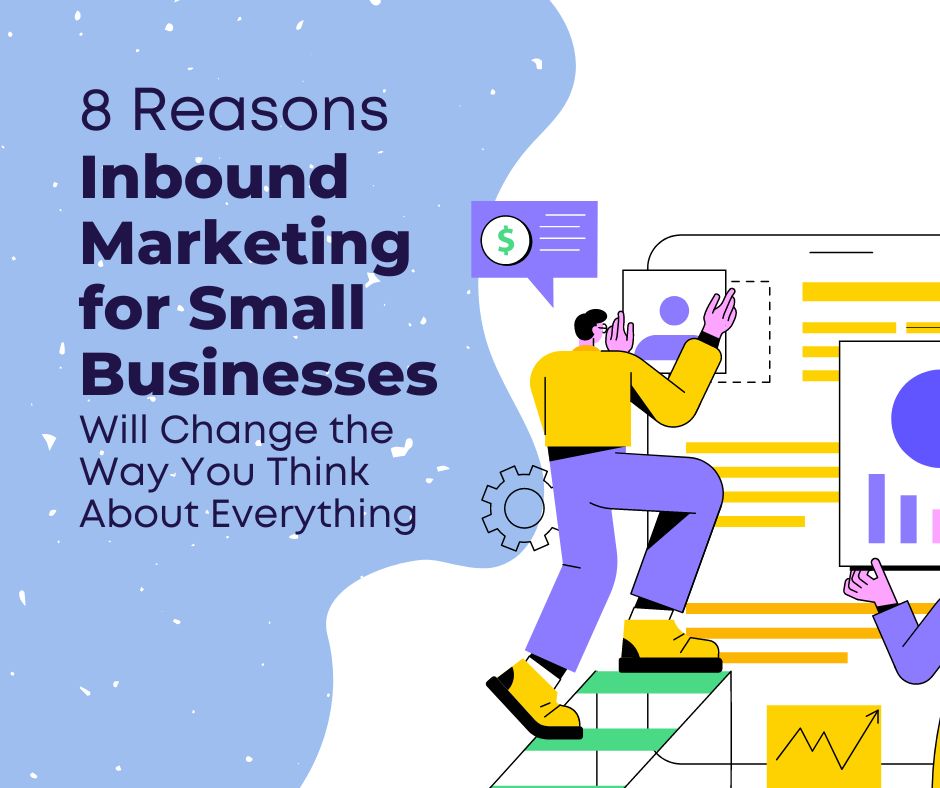Inbound Marketing for Small Businesses: 8 Key Shifts
Reach the Top of Search Results with Amazing SEO Digital.
CONTENT MARKETING
Unlocking the Power of Inbound Marketing for Small Businesses

Inbound Marketing for Small Businesses: 8 Key Shifts you should know about.
In today’s digital age, inbound marketing has become an increasingly popular strategy for businesses looking to attract and retain customers. Inbound marketing differs from outbound marketing in that it focuses on creating valuable content and experiences that attract potential customers to your business rather than interrupting them with traditional advertising.
One key aspect of inbound marketing is content marketing, which involves creating and sharing valuable, relevant content that attracts and engages your target audience. This content can take many forms, including blog posts, social media updates, videos, etc.
Inbound marketing strategies also often involve search engine optimization (SEO), which helps optimize your website and content to rank higher in search engine results pages. Doing so can attract more organic traffic to your website and increase the likelihood of converting visitors into leads and customers.
Another critical component of inbound marketing is lead generation, which involves creating landing pages and conversion paths that encourage potential customers to provide their contact information in exchange for valuable content or resources. By building your email list and nurturing those leads through targeted email campaigns and personalized experiences, you can increase the likelihood of converting those leads into paying customers.
Inbound marketing can be a highly effective way to reach and engage your target audience, build trust and credibility, and ultimately drive more conversions and sales for your business. By creating valuable content, optimizing your website and marketing efforts, and personalizing your interactions with potential customers, you can use inbound marketing to achieve your marketing goals and grow your business over time.
Inbound Marketing for Small Businesses is an approach to marketing that has gained popularity over the years, and for a good reason. This approach focuses on creating valuable content and experiences that attract potential customers to your business. In contrast to traditional marketing methods, Inbound Marketing puts the customer first and builds lasting relationships. In this article, we’ll explore 8 reasons why Inbound Marketing for small businesses will change your thoughts about everything.
Key Shift 1: Cost-effective
Inbound Marketing for Small Businesses is cost-effective, especially for small businesses with limited budgets. Traditional marketing methods such as print ads, billboards, and TV commercials can be expensive, and it can be challenging to measure their effectiveness. In contrast, Inbound Marketing for Small Businesses techniques such as content marketing, social media marketing, keyword blog posts, and email marketing are inexpensive. They can deliver significant results when implemented in a strategic inbound marketing plan. It allows marketers to reach the right prospects via digital channels at the right time with targeted content that resonates best with them; this leads to higher conversion rates than traditional outbound marketing tactics alone.
Business owners have access to many inbound marketing tools that help them create effective inbound strategies for your products and services; these include influencer outreach campaigns or lead nurturing through automated emails that drive traffic back to your website. Social media posts are essential in driving visitors from organic searches, which helps small business owners raise brand awareness amongst target audiences. It’s time for every marketer who wants successful outcomes from their efforts to start leveraging various types of content creation, including videos and podcasts.
The essence of Inbound Marketing for Small Businesses is about creating quality content at the correct times. Hence, buyers find answers to quickly asked questions throughout their research process before making a purchase decision – helping them make better decisions faster without needing salespeople involved each step along the way, thus leading to a higher conversion rate on the bottom line compared to any other type of modern-day advertising & promotion strategy like OutBound or Digital Marketing used by most Business Owners & Entrepreneurs today. It’s one of the best ways to help your business stand out from competitors since according to customers surveys undertaken over the past few years,
Key Shift 2: Improved targeting
Inbound Marketing for Small Businesses focuses on creating content and experiences that resonate with your target audience. By understanding your audience’s pain points, interests, and behavior, you can create an effective inbound marketing campaign that includes influencer marketing, subscriber acquisition strategies, buyer personas development, and more. This approach is more effective than traditional outbound marketing methods that rely on a broad-based approach. Inbound Marketing allows small businesses to target their ideal customer through multiple channels, such as social media platforms, email list-building campaigns, or other digital tools, resulting in higher-quality leads and conversions.
Business owners must also develop a successful inbound marketing plan by using the best of both worlds – combining traditional outbound strategies like direct mail or print advertising with modern inbound tactics such as automated emails or targeted content pieces – to optimize their results. Content is one of the most critical parts of your inbound marketing strategy – if not the essential part – according to one survey conducted by Hubspot, nearly two-thirds (60%) say it’s the number one driver for generating website traffic and sales leads. With this type of knowledge, following up on how well each piece of content works will help you create future pieces that attract the right people who convert into customers faster, along with helping you rank better organically within search engine optimization (SEO).
Tools to help execute your plan are valuable, too, when running an effective inbound marketing campaign, from web analytics software for measuring performance metrics to automation tools for scheduling posts across multiple channels, so you don’t have to do everything yourself manually! Utilizing these types of devices will help make sure all elements align together properly under any given budget constraints allowing business owners to understand where their efforts should be focused according to our industry trends & best practices for maximum ROI potential within today’s ever-changing & competitive landscape we call “Marketing.” It is clear that Inbound Marketing for Small Businesses is here to stay—it has become an essential part of any successful online presence & investing the time upfront will yield long-term results!
Key Shift 3: Increased Brand Awareness
Inbound Marketing for Small Businesses can help small businesses to increase their brand awareness. By creating valuable content that resonates with your target audience and leveraging b2b marketing strategies, you can position your business as an expert in the industry. Additionally, by utilizing social media platforms and other online channels, such as marketing automation, you can reach a broader audience and attract more potential customers to your business.
As well as following inbound marketing examples, it is essential to consider outbound marketing strategies – like sales funneling – when creating an effective inbound strategy. To maximize the potential of inbound marketing, businesses must understand what type of content should be made for their target market; this will help them craft a successful content strategy tailored precisely to their needs.
For effective inbound marketing strategies, marketers need ideas on creating an in-depth plan covering all areas within the process. If done correctly, following through with these steps could result in fantastic results for any business that uses this form of digital promotion within their company’s overall branding goals.
Key Shift 4: Builds Trust and Credibility
Inbound Marketing for Small Businesses is an effective way to build trust and credibility with potential customers. You can establish your business as a trusted resource by creating valuable content that addresses your audience’s needs and pain points at the right time through various inbound marketing channels. Through these strategies, you can create an effective inbound marketing strategy and take advantage of the best inbound marketing tips available today.
In addition, this type of marketing is becoming increasingly crucial for businesses as it becomes more apparent that Inbound Marketing for Small Businesses is the future of successful digital campaigns. These tactics will increase brand awareness and create trust between current and new customers, leading to more conversions and repeat business.
Key Shift 5: Better Customer Relationships
Inbound Marketing for Small Businesses can help small businesses to build better relationships with their customers. By developing an inbound marketing strategy that includes content tailored to the needs of your audience, you will be able to show them that you truly care about their success. Additionally, by providing excellent customer service and support at the right time, you can create a loyal customer base that will continue doing business with you for years. Inbound marketing takes time and effort, but when done correctly, its strategies are effective in helping small businesses stand out from competitors in the marketing industry.
Key Shift 6: Enhanced Customer Experience
Inbound Marketing for Small Businesses can help small businesses to enhance the customer experience. Creating valuable content and experiences that address your audience’s needs can make a positive impression of your business. Additionally, by providing excellent customer service and support, you can create a seamless customer experience that will keep customers returning.
Inbound Marketing for Small Businesses also helps to create a strong connection between your business and customers. By engaging with customers on social media or email, companies can build relationships and trust lasting for many years. Additionally, having an online presence makes it easy for customers to quickly find information about your products and services, which is essential in today’s fast-paced world. Ultimately, providing an excellent customer experience through Inbound Marketing for Small Businesses encourages loyalty from consumers which can be invaluable for small businesses that rely heavily on returning customers.
Key Shift 7: Measurable Results
Inbound Marketing for Small Businesses provides measurable results that can help small businesses to track their progress and adjust their strategies accordingly. By using analytics tools and other metrics, you can follow the effectiveness of your Inbound Marketing efforts and make data-driven decisions. This can lead to better results and a higher return on investment in the long run.
This is especially true for small businesses that may not have the same resources as larger companies. By tracking their progress in real-time, they can make sure that their efforts are paying off and adjust any strategies if necessary. This allows them to stay ahead of the competition and maximize their budget while getting maximum results from Inbound Marketing for Small Businesses. Additionally, because of its focus on long-term customer relationships rather than short-term gains, Inbound Marketing often yields better returns than traditional marketing techniques.
Measurable results are beneficial for small businesses because they can use them to assess their progress and make improvements. For example, tracking page views or click-through rates on content can help determine what content resonates with your target audience. You can also look into search engine optimization (SEO) performance and understand how your website ranks in the SERPs. By adjusting your strategies based on these metrics, you’ll be able to maximize the effectiveness of Inbound Marketing and see improved results over time.
Key Shift 8: Long-term Success
Inbound Marketing for Small Businesses is a long-term strategy that can help small businesses to achieve lasting success. You can establish your business as a trusted resource by creating valuable content and experiences that address your audience’s needs at the right time. With an effective inbound marketing strategy, you’ll be able to reach more potential customers who are actively searching for services or products similar to what you offer. Content marketing strategies such as blogging, social media posts, and email campaigns should also be implemented so that people continue engaging with your brand over time.
Combining these elements into one comprehensive inbound marketing plan will give you a better chance of achieving long-term success since these strategies are proven effective for growing businesses. Additionally, by building better relationships with your customers and providing a seamless customer experience through marketing and inbound tactics, you can create a loyal customer base that will continue doing business with you for years.
Case Study
How Inbound Marketing Increased Sales by 50% for a Small Business in the Fitness Industry Subtitle: A Case Study on the Power of Inbound Marketing for Small Businesses Strategies
Introduction:
Finding new and effective ways to market your products or services can be challenging as a small business owner. However, implementing inbound marketing strategies proved to be a game-changer for one fitness studio owner. In this case study, we’ll dive into how this fitness studio increased its sales by 50% with the help of inbound marketing.
Background:
The fitness studio had been in business for several years and relied primarily on traditional marketing methods, such as print and radio commercials. However, they found that these methods were becoming less effective and more expensive. They knew they needed to find a new approach to reach potential customers.
Challenges:
One of the fitness studio’s biggest challenges was a lack of online presence. They had a website, but it was outdated and didn’t reflect the quality of their services. Additionally, they didn’t have a solid social media presence and weren’t sure how to effectively reach their target audience online.
Solution:
The fitness studio partnered with an inbound marketing agency to develop and implement a comprehensive inbound marketing strategy. The agency helped them create a new website with a modern design optimized for search engines. They also started a blog where the fitness studio could share valuable content related to health and fitness and optimized it for keywords relevant to their target audience.
The agency also helped the fitness studio develop and execute email campaigns, social media marketing, and lead generation strategies. They used personalized email campaigns to nurture leads and build relationships with potential customers. They also used social media marketing to promote their services and engage with their target audience. Additionally, they used lead generation strategies to capture information from their website and nurture them until they were ready to become customers.
Results:
After implementing the inbound marketing strategies, the fitness studio saw significant results. Within six months, their website traffic had increased by 75%, and their lead generation efforts resulted in a 40% increase in leads. Additionally, their sales increased by 50% within the first year of implementing inbound marketing strategies.
Case Study Conclusion:
This case study demonstrates the power of inbound marketing strategies for small businesses. By creating valuable content, optimizing its website for search engines, and using personalized email campaigns and social media marketing, the fitness studio was able to increase its online presence, generate more leads, and ultimately increase its sales. If you’re a small business owner looking for new and effective marketing strategies, inbound marketing may be the solution you’ve been searching for.
Conclusion
Inbound Marketing for Small Businesses is a powerful approach to marketing that can help small businesses to achieve lasting success. By creating valuable content and experiences that address your audience’s needs, you can attract more potential customers to your company and build better relationships with your existing customers. In today’s digital age, Inbound Marketing is essential for small businesses looking to compete in their industry.
By implementing an effective Inbound Marketing strategy, small businesses can benefit from increased brand visibility, improved customer relationships, and higher conversion rates. With the right approach to content creation and engagement, you can reach your target audience in a meaningful way that resonates with them. Additionally, by engaging with customers on social media platforms and encouraging them to review your products or services through various channels, you can build trust with potential clients while providing valuable feedback for improving product offerings. Ultimately, Inbound Marketing for Small Businesses offers small businesses an excellent opportunity to grow their business in today’s digital world.
Frequently Asked Questions (FAQ)
What is Inbound Marketing?
Inbound Marketing for Small Businesses is an approach to marketing that focuses on creating valuable content and experiences that attract potential customers to your business.
How does Inbound Marketing differ from traditional marketing?
Inbound Marketing for Small Businesses puts the customer first and focuses on creating valuable content and experiences that address their needs. Traditional marketing methods rely on a broad-based approach that may not resonate with your target audience.
Is Inbound Marketing only suitable for small businesses?
Inbound Marketing for Small Businesses can be effective for businesses of all sizes, but it is particularly well-suited for small businesses with limited budgets.
How long does it take to see results from Inbound Marketing?
The timeframe for seeing results from Inbound Marketing for Small Businesses can vary depending on your industry, target audience, and other factors. However, many businesses start to see results within 6-12 months of implementing an Inbound Marketing strategy.
What are some common Inbound Marketing strategies?
Common Inbound Marketing for Small Businesses strategies include content marketing, social media marketing, email marketing, and search engine optimization (SEO).
Can Inbound Marketing help to improve customer relationships?
What are some tools and metrics that can be used to track Inbound Marketing progress?
Tools and metrics that can be used to track Inbound Marketing for Small Businesses progress include Google Analytics, social media analytics, email marketing metrics, and lead generation metrics.
Why is Inbound Marketing a long-term strategy?
Inbound Marketing for Small Businesses is a long-term strategy because it focuses on creating valuable content and experiences that establish your business as a trusted resource and build better customer relationships. This takes time and effort, but the results are worth it in the long run.
Boost Your Online Visibility with Our Expert SEO Services
Improve your Google search rankings and discover new consumers with the aid of our professional staff. Don't pass up your chance for internet success. We can help you get more targeted visitors to your website if you get in touch with us now to find out more about our search engine optimization services.


